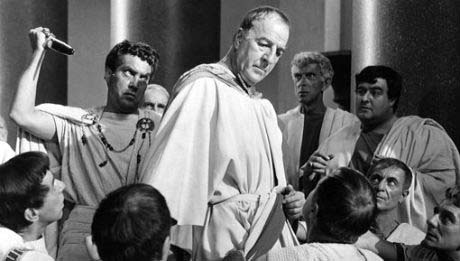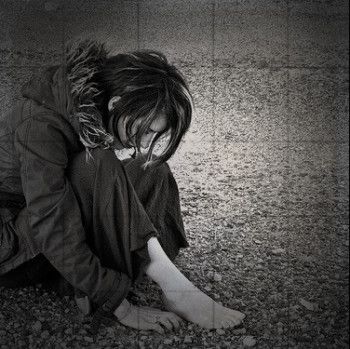Feeling Betrayed: Emotions, Archetypes and Recovery, 1

Feeling betrayed is one of the most painful and difficult of emotional states. A betrayal in a key relationship — sexual, familial or friendship — can lead to an individual facing feelings of abject despair, and of being completely undone.

Many of us learned the famous line from Shakespeare uttered by Julius Caesar in school:
“Et tu, Brute? Then fall, Caesar!”
Just last week, in my therapy practice, I met with a client who revealed a history of experiencing multiple betrayals on matters of great emotional importance within relationships of high significance. When the individual confronted the depth of the feeling involving these experiences, they were close to those of Shakespeare’s Caesar, who fell into absolute despair in the face of the betrayal of his friend.
We humans are social animals. Our evolutionary past centers around life in small, close groups. It is in our nature to form close bonds of crucial importance, which case studiess call attachment bonds, with those people who are closest to us. When those bonds are most crucial to us, when we trust them, and that trust is flagrantly broken, our reaction is most often intense grief and despair.
The Pure Bitterness of Betrayal
Betrayal is a common enough experience in human social life. It has been with us throughout the ages, and people in the 21st century experience its reality just like all who have come before us.
Trust is natural. The more complete the trust, the more devastating the betrayal.
Often, when people encounter betrayal of various sorts, they feel that they have been gullible and unwise. Their refrain is often, “How could I have been so stupid? I should have seen this coming! How could I have been so blind?” Yet, often for these individuals, betrayal has actually come with little, if any, warning.

At its extreme, betrayal can be traumatic. For instance, when an unsuspecting spouse suddenly finds clear and flagrant evidence of an affair, the experience of the discovery may take on many of the typical aspects of a traumatic event, such as re-living memories or finding the discovery of the affair appearing as recurring parts of a dream sequence.
The Archetype of Betrayal
In his work “Symbols of Transformation” Jung discusses the “unjust betrayal of the hero” motif, found throughout human mythology. Some examples would be:
- Siegfried and Hagen;
- Baldur and Loki;
- Samson and Delilah;
- Julius Caesar and Brutus; and,
- for European cultures, the iconic image of Jesus betrayed by Judas
 This motif keeps appearing in our myths, mythologists would tells us, because it represents a perpetual fact of human life: there will always be those who will betray the trust of others, for whatever reason of their own. Even the heroes and the gods, with all their strength and wisdom, are subject to having their trust betrayed. We ordinary human beings share in their vulnerability, not because we are weak or stupid, but because it is in the nature of our life as social beings that we are made to love and to trust — and we must run the risks of that.
This motif keeps appearing in our myths, mythologists would tells us, because it represents a perpetual fact of human life: there will always be those who will betray the trust of others, for whatever reason of their own. Even the heroes and the gods, with all their strength and wisdom, are subject to having their trust betrayed. We ordinary human beings share in their vulnerability, not because we are weak or stupid, but because it is in the nature of our life as social beings that we are made to love and to trust — and we must run the risks of that.

Can Life be Found on the Far Side of Betrayal?
In myth, a death due to betrayal is often followed by a re-birth or resurrection. Similarly, individuals can and often do find a way forward on the other side of betrayal. This is not to underestimate the difficulty of recovering from betrayal, but often there is a new life — even a better life — to be found in the ashes of betrayal.
Feeling betrayed may require us to go deep into ourselves, to recover who we most fundamentally are, what is truly important to us, and where life is calling to us. Often /a-midlife-transition can be a vital part of this process.
In the next part of “Feeling Betrayed” we will look more at the self-knowledge that can come from betrayal, and recovery into life on the far side of it.
Brian Collinson, Psychotherapist and Jungian Analyst
[cta]

 This motif keeps appearing in our myths, mythologists would tells us, because it represents a perpetual fact of human life: there will always be those who will betray the trust of others, for whatever reason of their own. Even the heroes and the gods, with all their strength and wisdom, are subject to having their trust betrayed. We ordinary human beings share in their vulnerability, not because we are weak or stupid, but because it is in the nature of our life as social beings that we are made to love and to trust — and we must run the risks of that.
This motif keeps appearing in our myths, mythologists would tells us, because it represents a perpetual fact of human life: there will always be those who will betray the trust of others, for whatever reason of their own. Even the heroes and the gods, with all their strength and wisdom, are subject to having their trust betrayed. We ordinary human beings share in their vulnerability, not because we are weak or stupid, but because it is in the nature of our life as social beings that we are made to love and to trust — and we must run the risks of that.